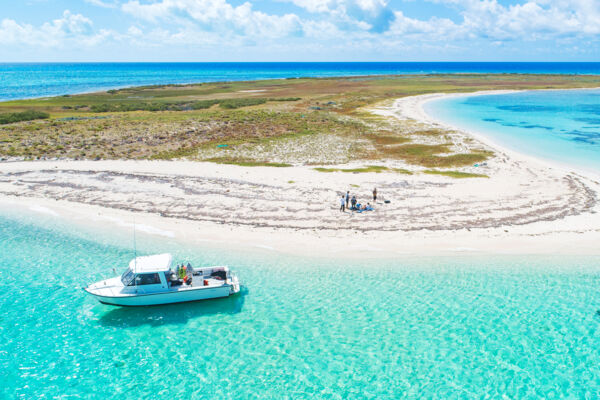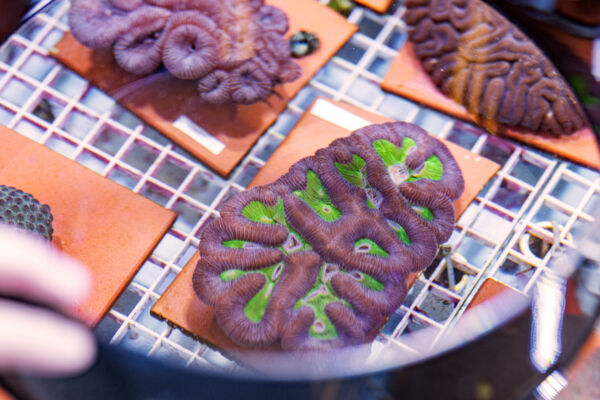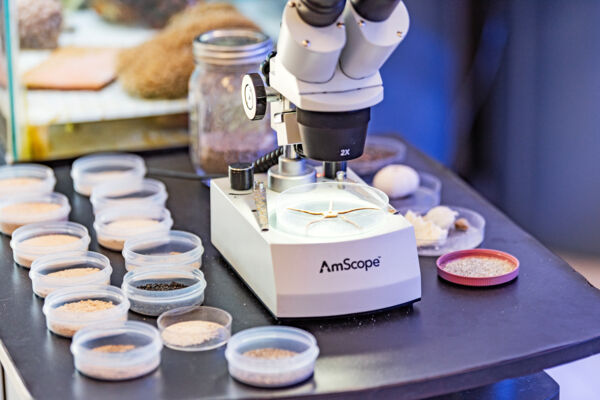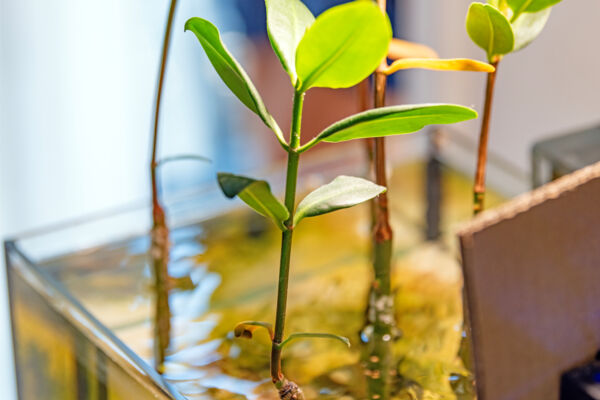Turks and Caicos Reef Fund
South Bank Marina, Long Bay Highway, Long Bay, Providenciales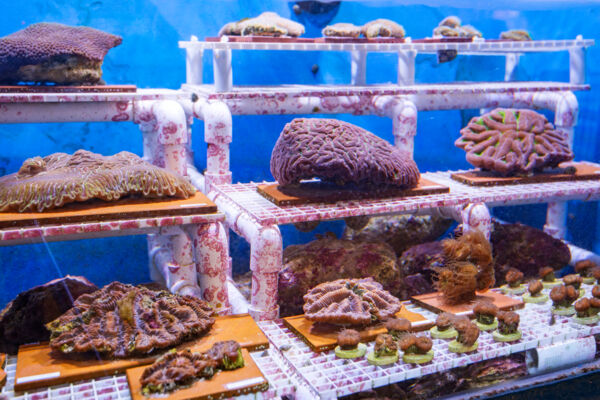
The Turks and Caicos Reef Fund is a non-profit and non-government conservation body that works to protect the country’s corals and reefs. Founded in 2010 and based on Providenciales, the group is engaged in several long-term projects in the islands. These include collecting data on the reefs of East Caicos, installing boat moorings, doing public outreach, treating and monitoring stony coral tissue loss disease, and propagating corals at their ocean nurseries.
While much of the Reef Fund’s work is done at sea, their lab in the South Bank Marina is home to a coral bank, where they house a variety of coral species they are trying to preserve and protect. Many of these corals were rescued from the Blue Haven Marina’s dock renovation project in 2022, though some come from French Cay and East Caicos.
These corals are fed on Wednesdays by Reef Fund staff. The coral feeding is open to the public and free to watch, and it’s a unique way to learn about the life history and habitat of the corals you can encounter swimming, snorkeling, and scuba diving in the Turks and Caicos. The Reef Fund is a 501(c)(3) organization, and welcomes both donations and volunteers throughout the year to help with various efforts.
Corals in the Turks and Caicos
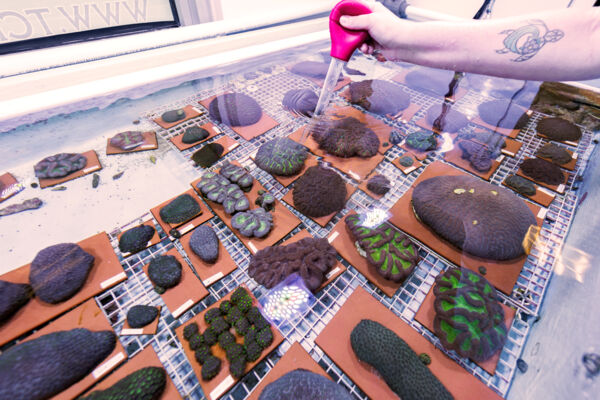
Contrary to popular belief, corals are animals, not plants. The Turks and Caicos Islands’ reefs are home to an estimated 60 coral species. These include maze coral (Meandrina meandrites), finger coral (Porites porites), and symmetrical brain coral (Pseudodiploria strigosa). Blade fire coral (Millepora complanata) is also common here—unfortunately, this somewhat dangerous coral can deliver a painful sting to bare skin when touched.
Most corals are very slow-growing animals. Some corals are exceptions to the rule, such as the critically endangered staghorn coral (Acropora cervicornis), which can grow up to eight inches per year and is a species that the Reef Fund is attempting to repopulate. As such, large coral reefs can be thousands of years old.
Snorkeling and scuba diving are the best ways to see the country’s diverse coral reefs and the marine life that lives on them. There are several great reefs off of Providenciales that are right off the beach, including Smith’s Reef and the Bight Reef.
Coral Feeding
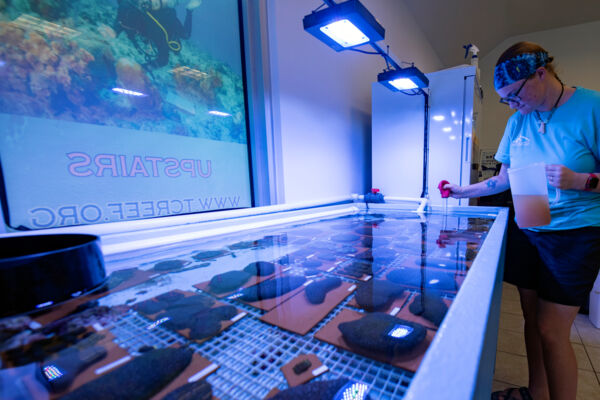
Being animals, corals need to eat, too (albeit only once a week), so the specimens at the Turks and Caicos Reef Fund are fed every Wednesday at 2:00 PM. They eat a mixture of freeze-dried marine plankton, crab, fish meal, and amino acids. Different corals feed in different ways—some use tiny tentacles to catch prey floating in the water, while others filter water into their mouths.
It’s best to get there early. That way, you’ll also have time to explore the coral and animal skeletons on display, peer at sand samples from areas as close as East Caicos and as far as Pompei through the lab’s microscope, and ask questions.
The corals are kept in a highly controlled environment. Just a little bit of lotion or sunscreen on your hands is enough to kill the fragile specimens living in these tanks, so to keep these creatures safe, only staff members are allowed to feed and touch the corals.
While you’re waiting for feeding time to come, pop down to the Sail Shades restaurant below the Reef Fund’s office. Various Caribbean dishes are served.
Threats to Coral Reefs
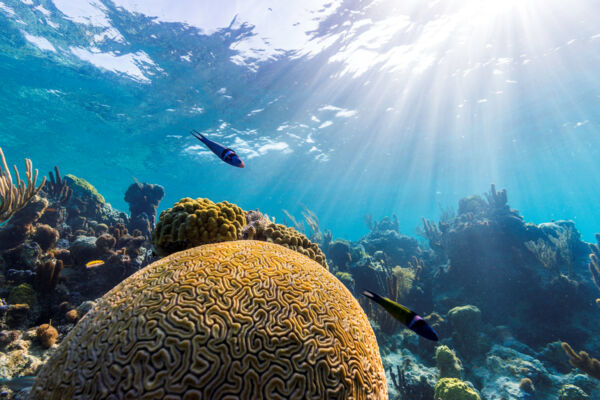
Unfortunately, Turks and Caicos corals and the marine environment at large face numerous threats to their existence, including coral bleaching, stony coral tissue loss disease, boat anchors dragging across reefs, overfishing, and development.
The Turks and Caicos Reef Fund leads several projects that work to mitigate these coral threats.
Skincare chemicals can also threaten corals. Wearing reef-safe sunscreen is one way that you can reduce your impact on the local reefs. Look for a zinc oxide or titanium dioxide sunscreen. The best option for keeping corals safe is wearing sun-protective clothing, like a rashguard or swim leggings, instead of using sunscreen.

